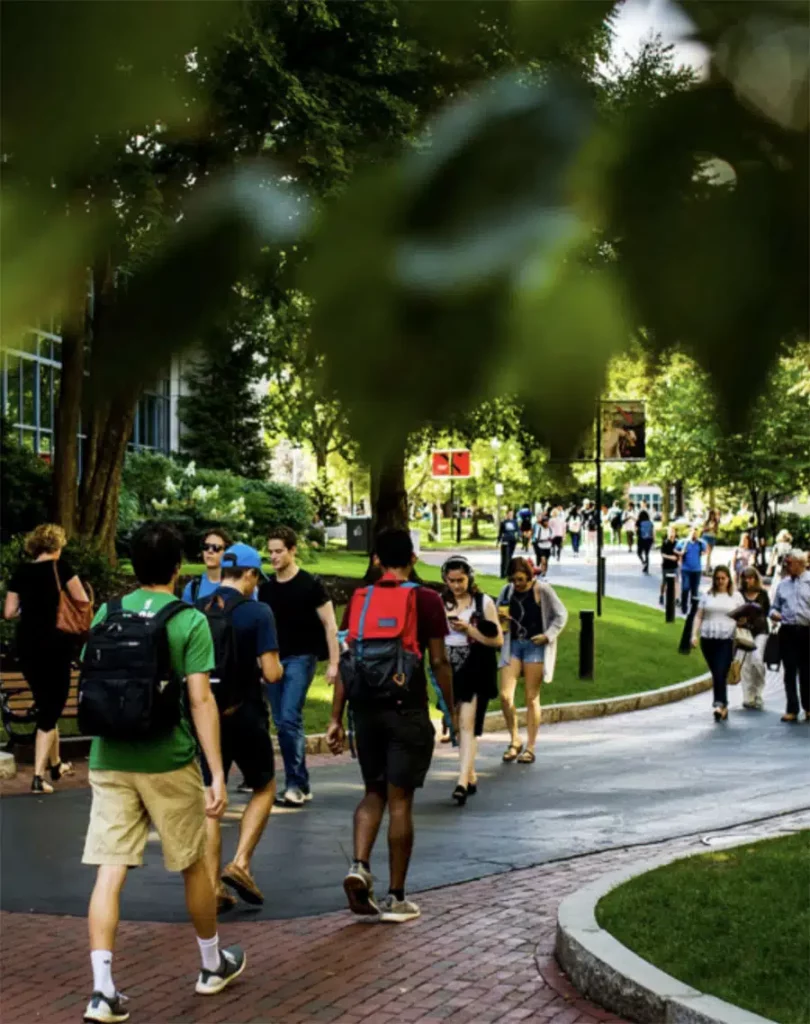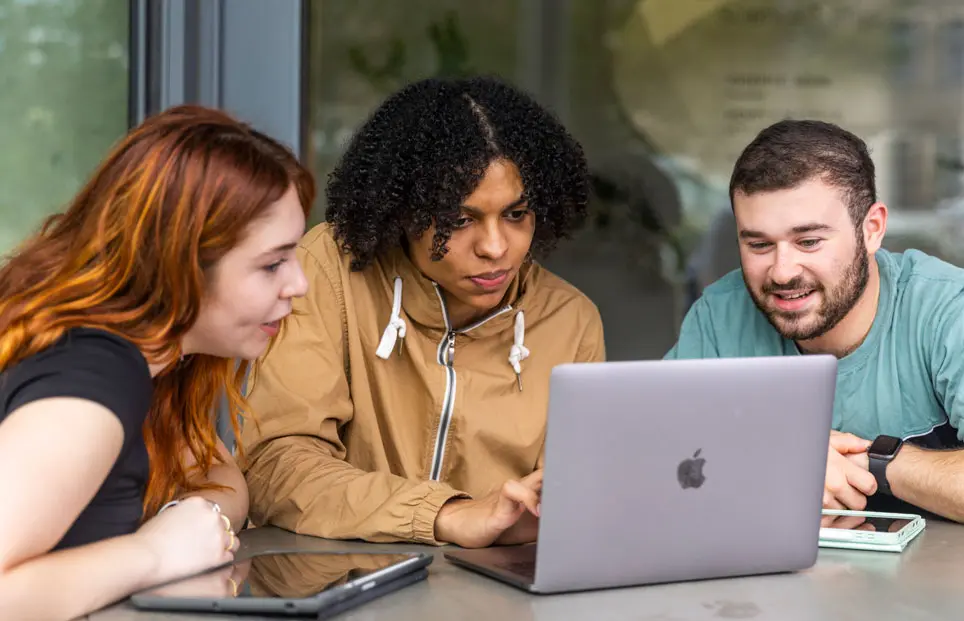YOU ARE BOUVÉ

The Master of Science in Counseling Psychology at Northeastern develops Licensed Mental Health Counselors (LMHC) with the latest training in contemporary professional practice powered by the foundations of Counseling Psychology.
The curriculum is inspired by an ecological approach, training students to look at humans in the framework of social and economic systems.
Research and clinical practice empower our students to understand urban, preventative, and community-based interventions so that they can effectively work with people of all backgrounds.


Coursework empowers students to choose a specific concentration to focus on throughout their studies, advancing their resumé beyond graduation. This puts our graduates ahead of the curve when applying for further graduate study and employment.
These concentrations take advantage of interdisciplinary training and perspectives in:
Our program complies with all of the most updated licensing regulations for Mental Health Counselors in the Commonwealth of Massachusetts.
While the Master of Science in Counseling Psychology program prepares students to become highly skilled licensed mental health counselors, this degree can also prepare students for careers in other areas of counseling, such as:
Degree type:
– MS in Counseling Psychology
Study options:
– On ground (Boston Campus)
– Full-time or part-time
Application deadlines:
Jan 15
GRE: Not required
F1 Eligible: Yes
If you have questions or concerns regarding professional licensure, please contact program manager Tracy Robinson-Wood.
Have questions? Sign up for one of our upcoming information sessions and get answers.

Our program is unique in that we offer students a choice of specific concentrations within the general Master of Science program. The concentrations offer the opportunity for students to gain additional depth in selected areas.
We believe that having a concentration in training will make our graduates especially successful in admission to further graduate study and jobs after graduation.
The Practicum occurs in the second semester during the first year and is a cornerstone in preparation for a clinical internship placement during the second year. The purpose of the practicum is to orient first-year students to the mental health field, human services agencies, clients, and their interrelationships. The students will explore the roles, functions, organizational structure, and client’s needs to gain awareness and perspective of the field.
The second phase of clinical training, known as the Internship, occurs during the second year. Each student will spend a minimum of 20 hours a week at their placement site. The purpose of the internship is to enable the student to refine and enhance their counseling skills, develop more advanced clinical, relational and intervention skills, and integrate professional knowledge during their field placement.
For both the practicum and the internship students select their sites from a list of approved agencies and services, with support from faculty and their individual advisors.

Free Career Guide:

Explore possible career paths and identify the essential skills needed to advance in the industry.
Sample curriculum, subject to change.
The chart below describes a sequence of courses as taught in the recent past. This chart is not a planning document for what course will be taught in which semester (spring or fall) in the future. For that information, students should consult with their academic advisor or see the university course catalog.
The program faculty reviews applicant credentials to assess the likelihood of successful completion of the program and the potential for contribution to the field of counseling psychology and the community at large.
To apply, applicants must also have the following:
An undergraduate major in psychology or its equivalent (6-8 courses with emphasis on the science of human behavior)
A minimum grade point average of 3.0 (program average is 3.5)
Two letters of recommendation (academic and professional)
Personal statement of goals and expectations. (Min. 500 words)
Evidence of some experience with and commitment to helping relationships. Professional goals and personal development in line with the program.
Personal interview with faculty
TOEFL or IELTS (International Students)
Official transcript from baccalaureate program and all college coursework
Please note that the contact individual for the program is not directly involved in admission decisions. If you have specific questions regarding faculty research interests, please feel free to contact the faculty member directly.
Tracy Robinson-Wood, EdD
Program Director



Boston is one of the world’s foremost centers for health treatment and research, and we have excellent relationships with numerous hospitals, clinics, health centers, shelters, and community service agencies. Over the course of your two years of study, you may choose to return to the same placement site or gain a variety of experiences at different sites.
Advisors are assigned to each student as they enter the program. However, all faculty are available to the students and if interests come to be shared, a new advisor can be selected by any student. Your adviser will work with you to find an appropriate placement in a:
Interested students should apply by the application deadline of January 15 for fall semester entrance. Our program team will review all applications. Applicants who meet our requirements will be considered for the next step, which is a virtual interview. Applicants selected for an interview will receive an invitation, and upon acceptance of the invitation will then receive further instructions.
Following the completion of interviews, our program team will make a final determination about which students will be accepted for that fall’s incoming cohort.
We seek to have an incoming class of about 30 students. Class sizes range from 8-10 for internship seminars to approximately 25-35 for didactic classes.
